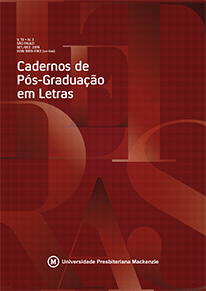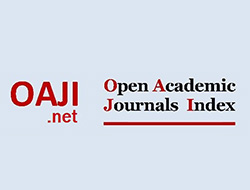Chimamanda Ngozi Adichie and “The danger of a single story”
a study about the danger of stereotypes
Keywords:
Adichie, Africa, StereotypeAbstract
Cultural studies are a field that gives us the possibility of observing and analyzing what it is happening around us in a more humanistic way. This present article aims to observe in the lecture how people, in general, have the tendency of creating stereotypes of places, peoples, cultures and so forth, through a single story that we were told. Also, how globalization may influence in it, since it is known that the world is in a constant movement and it is possible to observe people leaving their own countries for different reasons. Stuart Hall, Nestor Canclini and Homi Bhabha are the chosen authors to make this analysis possible. All of these elements will be analyzed in the lecture called “The danger of a single story” made by the Nigerian writer Chimamanda Ngozi Adichie.
Downloads
References
ADICHIE, C. N. The danger of a single story. 2009. Disponível em: https://www.ted.com/talks/chimamanda_adichie_the_danger_of_a_single_story. Acesso em: 18 abr. 2019.
BHABHA, H. K. O local da cultura. Belo Horizonte: Editora UFMG, 1998.
CANCLINI, N. G. A globalização: objeto cultural não-identificado. In: CANCLINI, N. G. A globalização imaginada. Tradução Sérgio Molina. São Paulo: Iluminuras, 2007. p. 41-59.
GAY, P. du; HALL, S. Questions of cultural identity. London, Thousand Oaks, New Delhi: Sage, 2003.
BLAME it on Lisa. Oregon: Fox Entertainment, 2002. 1 vídeo (22 min.). Publicado pelo canal João Batista. Disponível em: https://www.youtube.com/watch?v=_Ai9FCCdJQc&t=4s. Acesso em: 15 abr. 2019.
Downloads
Published
How to Cite
Issue
Section
License
Copyright (c) 2019 Cadernos de Pós-Graduação em Letras

This work is licensed under a Creative Commons Attribution 4.0 International License.
The copyright of the articles published in Cadernos de Pós-Graduação em Letras belongs to the authors, who grant the Mackenzie Presbyterian University the exclusive rights to publish the content. Total or partial reproduction is prohibited without due authorization from the Editorial Committee, except for study and research.











